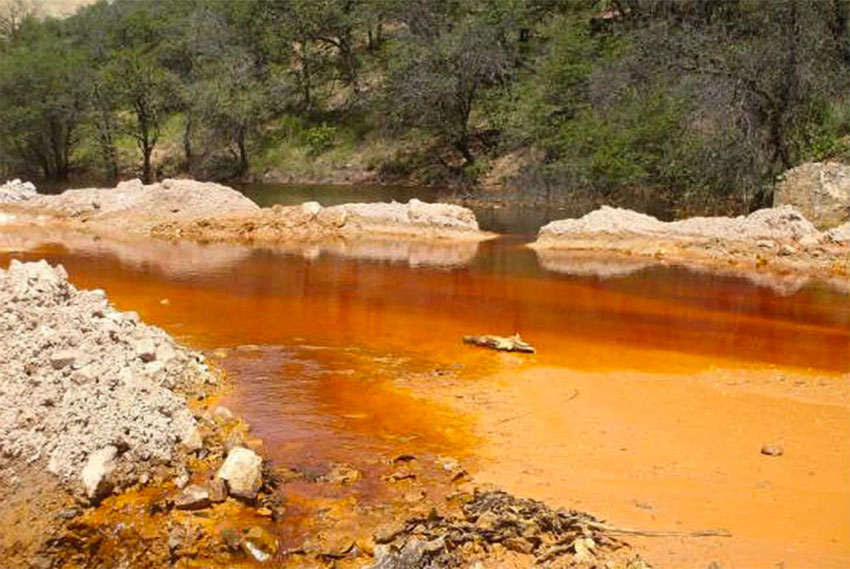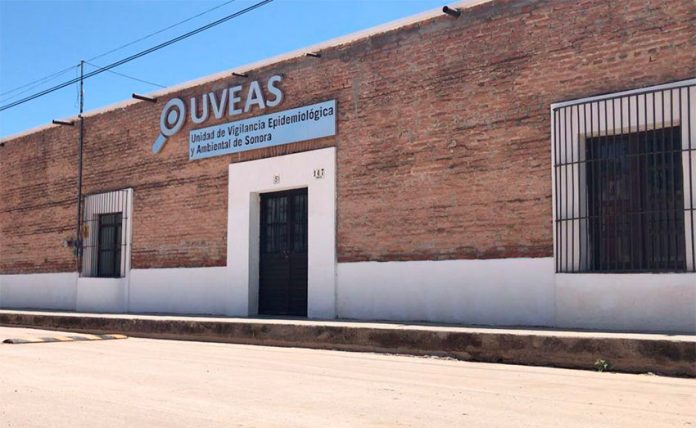Five years after a massive toxic spill into two rivers in Sonora by a Grupo México copper mine, residents of affected communities accuse the company of failing to keep its promises to remedy the environmental damage and build water purification plants.
More than 40,000 cubic meters of toxic substances, particularly copper sulfate acid solution, spilled into the Sonora and Bacanuchi rivers on August 6, 2014, at the Buenavista copper mine in Cananea.
The incident, described by environmental authorities as Mexico’s worst mining disaster, contaminated the local water supply, affecting an estimated 22,000 people in seven municipalities.
Hundreds of people have suffered from serious spill-related health problems.
In affected communities, there are elevated numbers of cases of cancer and hypertension along with increased reports of liver, kidney, pancreas and nervous system issues.

Grupo México, the country’s largest mining corporation, established a 2-billion-peso trust to carry out projects to remedy the damage and pay compensation to victims but it was shut down in February 2017 with only 1.2 billion pesos having been spent.
Affected communities have now initiated legal action in the Supreme Court have the trust reopened until all the promised projects have been completed.
Residents say that many of the water purification plants that were promised have not been built and that Grupo México only completed environmental remediation projects on one of five stretches of river where it committed to doing so.
They also say that a clinic established to treat people suffering from heavy metal poisoning will shut down today as the result of an agreement Grupo México reached with the former government behind their backs.
Luis Miguel Cano, a legal representative for the victims, said the pact violates the law because residents of affected communities were not consulted.
Residents say that if their legal action to reopen the trust is successful, Grupo México will not only have to spend the additional 800 million pesos it pledged but also provide details about the how the 1.2 billion pesos was used.
Irene Moiza, a resident of the town of Bacanuchi, said the last five years have been filled with uncertainty and anxiety because she doesn’t know whether the local water supply and the crops she grows are contaminated.
She said her animals have died without any explanation and charged that Grupo México has not been held responsible for the spill.
Baskut Tuncak, a United Nations special rapporteur on human rights and hazardous substances and wastes, said last year that the company’s failure to remediate the damage caused by its spill was a “shameless and flagrant example of impunity.”
Óscar Encinas, a small-plot farmer in Ures, said the copper mine spill has destroyed people’s lives, explaining that the economy has slumped by 70%. He explained that the squash, alfalfa and wheat grown in the region can’t find a market due to contamination concerns.
As residents continued to fight for justice, a collective of independent journalists made a documentary about the spill that investigates its effect on the environment and local residents.
Called Río Sonora: Impunidad y Olvido (Sonora River: Impunity and Oblivion), the film serves as a counterweight to authorities’ attempts to conceal the consequences of the 2014 environmental disaster, the journalists say.
To mark the fifth anniversary of the acid spill, the documentary premiered yesterday in the Sonora capital, Hermosillo.
Source: Notimex (sp), El Universal (sp)
